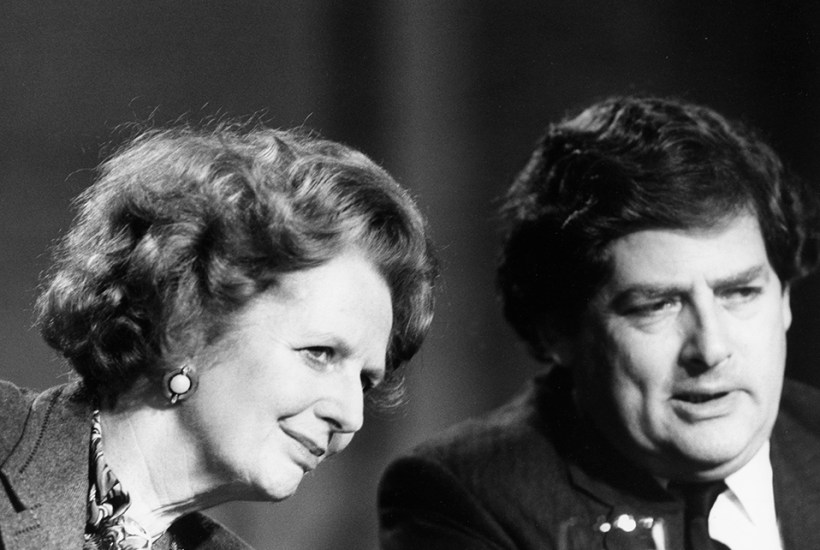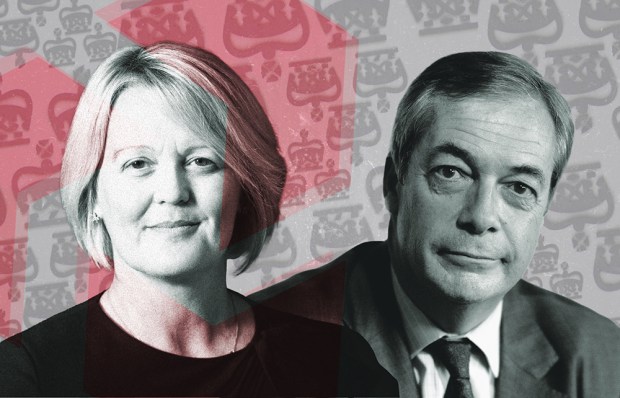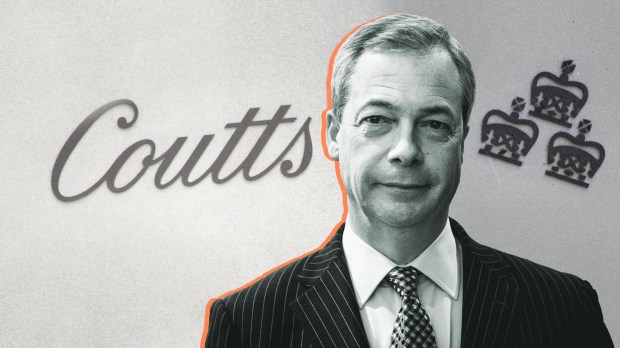Nigel Lawson was the most consequential chancellor in modern British history. He gave the world a case study in how to overturn a failed consensus. He was guided throughout his political career by the political principles articulated when he was editor of this magazine. His legacy is so rich that it offers a wide choice of lessons, three of which stand out for Rishi Sunak today.
The first is one that the Prime Minister himself writes about in his article – the importance of preparing for battles. Lawson wanted lasting change and realised that radicalism is pointless without strategy. Tax can only ever be a reflection of the spending rate: to cut tax revenue without spending restraint will only ever lead to the restoration of high taxes. So a reformer first needs to win the argument that a bloated state makes for a weaker economy and society.
To look back on the early Lawson years is to marvel at his work as an eloquent and tireless advocate for the change the country so badly needed, taking on critics at every turn, arguing patiently but unceasingly.
Which brings us to the second point, too quickly forgotten by the new breed of big-state Conservatives – that Lawson drew far more tax from the best-paid by giving them the biggest tax cut in history.
Spending restraint allowed him to make a cut that raised revenue, by reducing the top rate of income tax from 60p to 40p. When he did so in the 1988 Budget, there was uproar. A young Alex Salmond stopped proceedings in Westminster with his protests. But Lawson pressed on.
The Labour chancellor Denis Healey famously declared that he would tax the rich ‘until the pips squeak’, but his taxes – with a top rate of 83 per cent – did no such thing. The best-paid became tax exiles, the world’s entrepreneurs avoided Britain, and the top 1 per cent paid just 11 per cent of all income tax. The Lawson cut went on to more than double this ratio. He showed the world what John F. Kennedy described as the ‘paradoxical truth’ of fiscal policy: lower tax rates can lead to higher tax yields.
Such a counter-intuitive point needs to be properly explained, and the Tories have never rediscovered the Lawson-era ability to prepare the political ground for economic reform. When Liz Truss hastily tried to cut the top rate of income tax without explaining, she was forced into a U-turn within days. Politics is about making and winning arguments. All else is technocracy.
But the final Lawson lesson was a point he made from the backbenches of the House of Lords. He realised that a new threat had emerged to prosperity and social cohesion with the huge strains placed on the state and public by a flawed consensus on global warming. He did not dispute that man-made activity was contributing to temperatures rising but devoted his later years to asking what, then, is the most sensible approach? How can we address the issue while causing the least harm?
Lawson stepped in because he could see the political consensus had emerged around what is now the net-zero agenda without important questions being asked. Scientists who pointed out the flaws were attacked as apostates, their reputations besmirched and funding withheld. Only those with their careers behind them, Lawson argued, could safely engage in the vital battle of ideas. His Global Warming Policy Foundation became the lone voice posing rational challenge to a general view that seemed intent only on expensive and ineffective solutions.
The real problem, Lawson understood, was the curse of consensus. Speaking in the House of Lords in 2012, he made a point that deserves to be quoted in full: ‘In my rather long political experience, when all three political parties are agreed on a policy, it is nearly always mistaken. There is a very clear reason why that should be. The existence of all-party consensus ensures that the policy in question is never properly debated or scrutinised. If the evidence shows that a policy is mistaken, it should be abandoned. It is as simple as that.’
Lord Lawson was speaking then about international aid. All parties backed sending other people’s money – amounting to 0.7 per cent of GDP – to organisations of the government’s choice. But no one asked whether charitable donations should be the role of the state. Surely such a target should include what people donate of their own volition? No one asked, either, whether the money would be used well. It is currently being spent on accommodating asylum seekers in British hotels at the cost of £6 million a day.
The UK political system is supposed to have HM’s loyal opposition providing the challenge. When this is not applied (as it was not during lockdown, for example), where is the debate? Who will detect errors? This is why there should always be deep scepticism when we see all parties kneeling before the hastily assembled altars of new fashionable ideas.
In challenging the high-tax consensus that turned Britain into the sick man of Europe in the 1970s – and placing his faith not in the state but in the courage and the character of the British public – Lord Lawson showed how quickly national renewal can be achieved. Sunak has chosen the right man
to learn from.
Got something to add? Join the discussion and comment below.
Get 10 issues for just $10
Subscribe to The Spectator Australia today for the next 10 magazine issues, plus full online access, for just $10.
You might disagree with half of it, but you’ll enjoy reading all of it. Try your first month for free, then just $2 a week for the remainder of your first year.














Comments
Don't miss out
Join the conversation with other Spectator Australia readers. Subscribe to leave a comment.
SUBSCRIBEAlready a subscriber? Log in